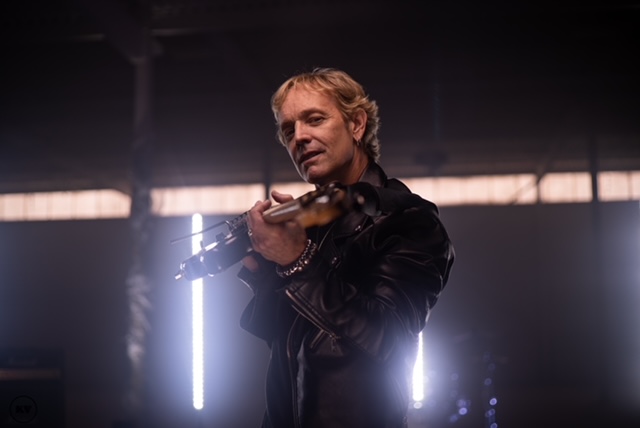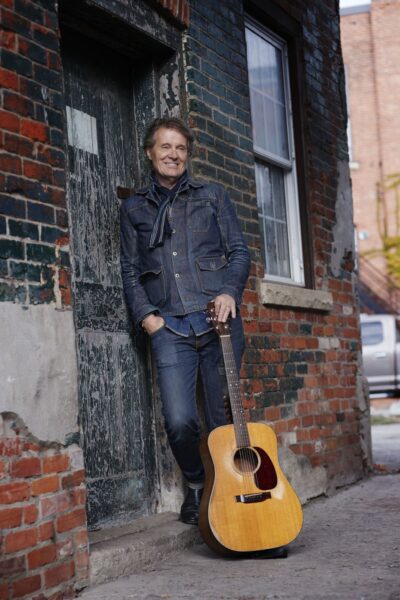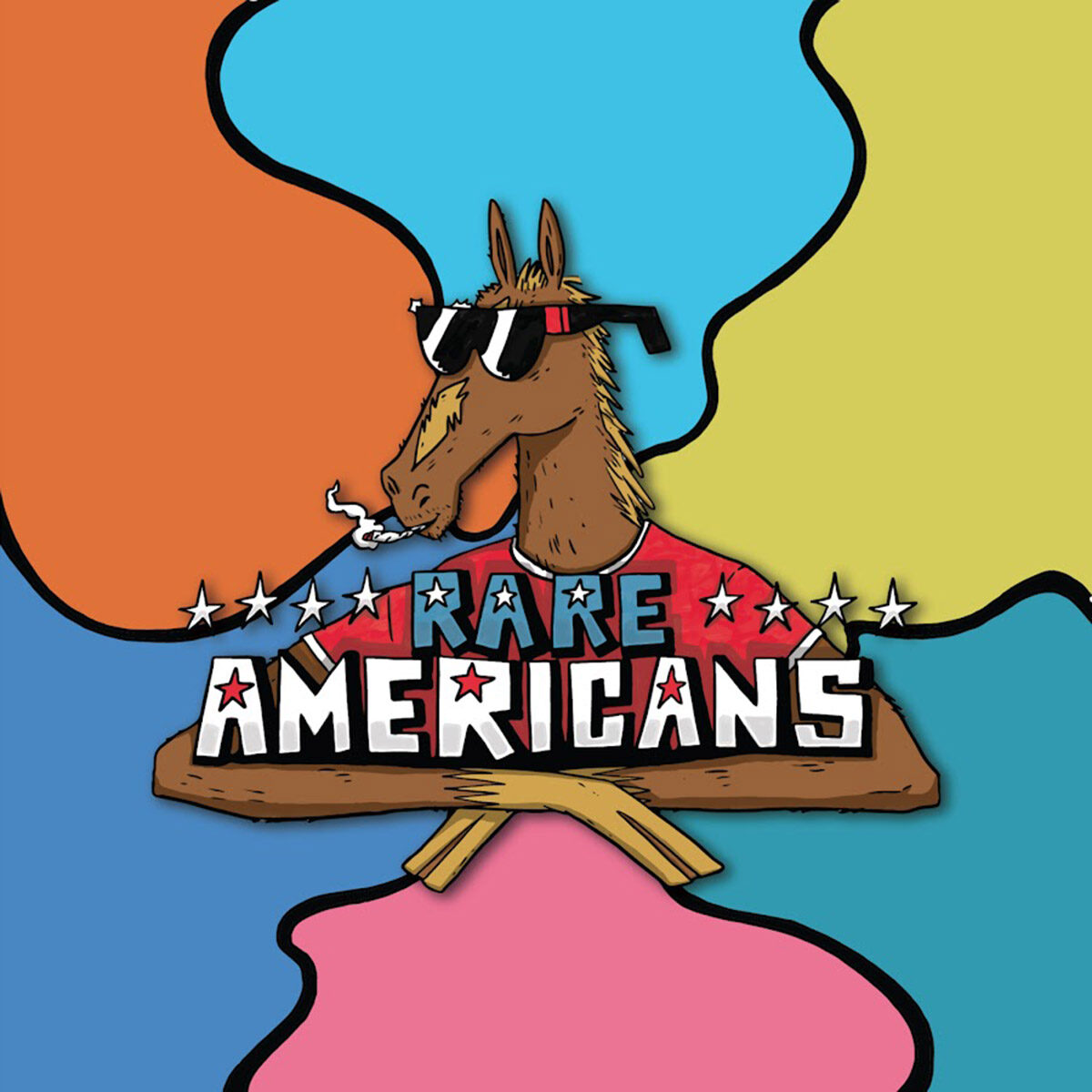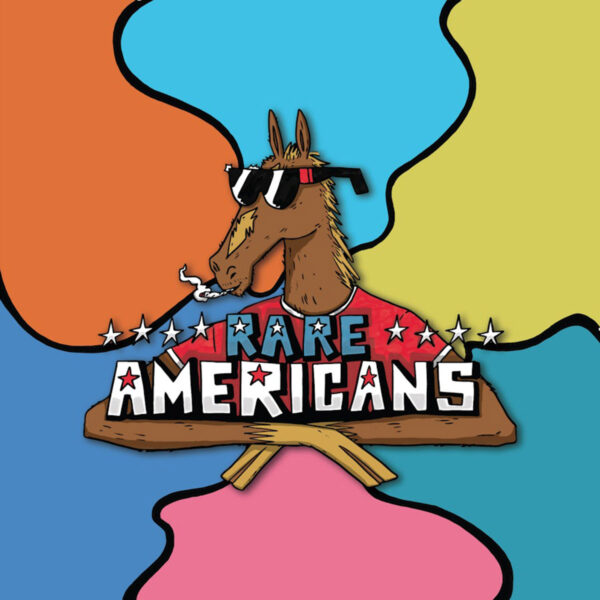Domestically, the music industry was exploding. New albums and new bands were arriving daily with growth evident right across Canada. Toronto lead the way with the likes of hard rock bands Rush, Triumph, Max Webster, Goddo and Moxy, the versatility of Lighthouse plus the True North folk scene powered by Bruce Cockburn, Dan Hill and Murray McLauchlan. Not to mention the still influential Gordon Lightfoot and Anne Murray.
Montreal had Mahogany Rush, April Wine, Gino Vannelli, Michel Pagliaro, Walter Zwol, Patsy Gallant and a new French Canadian movement around Beau Dommage, Harmonium and Sudbury Ontario’s Cano. Ottawa claimed Five Man Electrical Band and The Cooper Brothers. Even the East Coast boasted a distinctive blues scene with Sam Moon, Matt Minglewood and Dutch Mason leaving their mark along with Oakley, Molly Olliver, Figgy Duff and The Wonderful Grand Band.
Out West, the Vancouver-based ace management tandem of Bruce Allen and Sam Feldman broke ground with Bachman Turner Overdrive, Prism and Trooper and soon Bryan Adams and Loverboy would be added to Allen’s stable of acts. The Poppy Family’s Susan and Terry Jacks, Stonebolt, Chilliwack, Valdy, Bim, The Hometown Band, Powder Blues and Doug And The Slugs also made their mark while Nick Gilder’s Sweeney Todd dominated the charts with No.1 single ` Roxy Roller’ and Vancouver’s Mushroom label spawned Seattle immigrants Heart and former Montreal native Jerry Doucette.

“Trooper was coming up as the Canadian music scene was beginning to find its legs,” reflected the band’s lead vocalist Ra McGuire, still active and as popular as ever. “The international music industry was flourishing and a lot of that power, money and energy was filtering into Canada. As we went from record to record, we could feel not just our own career growing, but the entire Canadian industry was taking shape.”
Alberta still boasted former Bruce Allen band Hammersmith, Columbia Records’ Fosterchild and Edmonton’s One Horse Blue, launched on Wes Dakus’s Vera Cruz label while The Prairies spawned Streetheart, Queen City Kids, Crowcuss, Kickaxe and Harlequin. All these acts recorded albums and most received encouragement from local radio airplay and retail sales awareness.
What really powered Canada’s domestic music movement in the mid-seventies were Toronto concert promoters, Michael Cohl and Bill Ballard’s Concert Productions International which linked up with Montreal’s Donald Tarelton’s DKD Productions and Norm Perry’s Perryscope Productions in Vancouver to create a national touring circuit.
Taking top Canadian bands like April Wine, Rush, Triumph, Chilliwack, Trooper, The Stampeders and Lighthouse, this triumvirate of promoters executed coast-to-coast concert tours which hit all the small arenas as well as the Pacific Coliseum, Toronto Maple Leaf Gardens and Montreal Forum. This personal exposure created a national fan base, developed radio airplay awareness and stimulated record sales.
At a time when Martin Onrot and John Brower were the chief Toronto-based concert promoters, a young Ottawa native, Michael Cohl was trying his hand at concert promotion. After a few failed attempts, Cohl lucked out when he agreed to promote Pink Floyd at Maple Leaf Gardens when Onrot was only prepared to offer them Massey Hall. Cohl soon became a force in concert production. This would strengthen when he joined forces with Harold Ballard’s son Bill (and briefly Dave Wolinski) to form CPI.
Ballard Senior may have been a lousy owner of the Toronto Maple Leafs but the guy knew how to turn a buck in his building and quickly recognized Maple Leaf Gardens was the largest concert facility in Canada. By having his son Bill, join forces with Cohl on what proved to be an exclusive concert promotion agreement, CPI became an instant powerhouse.
[quote]Alice was curled up in a fetal position on the dressing room floor. He was in a bad state[/quote]Their only real competition came from David Horodezky’s Calgary-based Brimstone Productions which controlled much of the activities in Alberta and the Prairies. Horodezky had developed loyal clients in Supertramp, Queen, Rod Stewart and The Dire Straits to name a few. “I didn’t have much if anything to do with CPI/DKD and Perryscope.” noted Horodezky. “I kept busy developing my own acts and we pretty well owned Alberta through to Winnipeg.”
CPI/Donald K Donald’s main Alberta contact was Ron Sakamoto who ran his Gold & Gold Company from Lethbridge and acted as their main connection whilst avoiding a direct clash with Horodezky’s Calgary-based operation. He emerged as a major national country music promoter and owned the distinction of booking Shania Twain’s first North American tour.
Chris Dobbin’s Springfield Productions, also based in Calgary, attracted his share of concerts throughout Alberta and the Prairies including Eagles’ and Boz Scaggs dates at Calgary’s McMahon Stadium and Edmonton’s Commonwealth Stadium. Yet it was an Alice Cooper date at McMahon Stadium June 25th 1977 that still lives in infamy. Dobbin, now a successful realtor, had booked a major gig at McMahon, featuring Cooper with opening acts Trooper and The Atlanta Rhythm Section.
Now anyone who knows anything about McMahon’s geographical location knows it is positioned in a gully between foothills north of the city and when the weather is stormy, acts like a natural wind tunnel. Dobbin had pulled in a decent crowd of some 15,000 punters and Trooper kicked off the gig in blazing sunshine. But as Atlanta Rhythm Section began their set, ominous black clouds started to form in the Northern skies. Suddenly howling winds and torrential rain swept through the stadium.
I was backstage, off to the side when I witnessed the drummer’s kit start flying off the stage and huge speaker stacks wavered then tumbled. The poor ARS drummer smashed on his cymbals, kicked them over in disgust and ran off stage. Rain started sheeting down, tarpaulins tossed out to cover the crowds were turned into water slides but as the elements continued to deteriorate, Dobbin and his staff could feel the crowd’s mood turning nasty.

“They definitely wanted Alice Cooper to go on but there was no way. Alice was curled up in a fetal position on the dressing room floor. He was in a bad state” Dobbin explained. “It was a miracle his set happened at all.” Cooper’s manager Shep Gordon met with police security and it was decided Cooper would perform an abbreviated set, provided the weather improved.
Fortunately, the deluge abated, water was swept off the stage, the sound system reset and Cooper eventually performed a mini set. No special effects, just Alice belting out a bunch of songs before heading for the protection of his limo. “It was a real shame the weather ruined Alice’s concert, noted Gary Waldron, Dobbin’s production partner. “The same show had gone so well in Vancouver and Edmonton.”
Waldron also explained Cooper was almost strangled by his boa constrictor snake during the Vancouver show. “U.S customs wouldn’t allow Cooper to use his regular snake so CFOX in Vancouver advertised for anyone who owned a boa constrictor in Vancouver. “Someone came forward with a snake but it became so spooked by all the cameras and crowd noise during the show it started to constrict around Alice’s neck and we had one helluva battle to get that snake off of him.”
“So when we got to Edmonton, we recruited another snake. That went well in Edmonton but when we got to Calgary, there was such a delay in the show and I think the owner had been partying because the snake slid out of the guy’s car and was never seen again.”
Going into my sixth year at the Herald, Sports Editor Hal Walker promised me better assignments. I supposedly had a choice of the local pro baseball team or the golf beat and the Western Canadian Hockey league junior Calgary Wranglers – after I finished the Commonwealth Games. But again, fate took its hand and conspired to shake things up.
Walker, who had been a great supporter of mine, retired in March of ’78 and shortly after died of a heart attack in Toronto. Replacing him was George Bilych, a senior writer who covered the Stampeders’ football team and along with Larry Wood, also authored Canada’s national curling magazine. I mention this because it was Bilych who began pressuring me about ME being a conflict of interest. If that was the case, what the hell was his curling magazine?
Knowing this was going to be a Commonwealth Games year at the Herald, continuing ME was a challenge as I was still inundated with assignment offers on the music side. One was a call from Columbia to fly to Toronto to witness the debut of the label’s new band Zon who were launching their “Astral Projector” album. I didn’t know anything about them but if a label was prepared to fly me to Toronto and stay in the Westin Hotel (now the Hilton) for two nights, I reasoned this band must be good.

As an aside, I had interviewed Goddo’s Greg Godovitz on their debut release and when the band’s “Who Cares” second album came out in early 78 I noticed they had listed me and Music Express in their album credits – a much appreciated gesture. So knowing I was going to Toronto for the Zon gig, I got in touch with Greg and he invited me to their concert at the infamous Knob Hill Hotel and said he would get his label PolyGram, to arrange for me to interview him for the new album.
Zon debuted on stage, their front man Denton Young was wearing a Peter Gabriel-type mask and the band was noodling these electronic arrangements. The audience started to stir. Not exactly the next coming of Led Zeppelin. Three songs in and some of the audience are heading for the buffet table. Obviously things aren’t going well for the band. As Zon concluded a seemingly abbreviated set, they are met with a polite ripple of applause but nothing that suggested a national media launch was warranted.
The following afternoon, I met the band at Columbia Records and Young was obviously upset with their performance. “It was too early for us to do a show like that,” complained Young. “To play in front of an industry audience who don’t know who we are was crazy. Probably did more damage than good.” “Astral Projector” actually did okay. The band was nominated for a top new group Juno and toured with Styx and Foreigner before being dropped from the label after their follow-up “Back Down To Earth” release failed to generate sufficient interest.
Traveling up the Don Valley Parkway to catch Goddo at the Knob Hill Hotel was quite an experience. Goddo was gaining a reputation of being the hottest act on the Toronto club circuit and the Knob Hill, with its adjourning strip club, was their home base. “Who Cares” was turning into a monster release, Kathi McDonald (who later gained fame singing with Long John Baldry) sang guest vocals and the place turned into a sweaty cauldron of energy.
[quote]They grab the remaining beers and start to execute a series of sexual pyrotechnics, while I and the now discarded Godovitz groupie sat and stared[/quote]Following the gig, I met Greg, guitarist Gino Scarpelli and drummer Doug Inglis backstage and Greg, noting I was staying at the Westin, suggested his band (and select friends) should drop by for a few drinks later. Bad mistake! I raced back to the hotel and secured a 12-pack of beer. Greg arrived about 1 a.m. with a groupie from the show. Immediately goes into the bathroom, has sex with her on the toilet seat (didn’t bother to close the door), re-emerged, knocked down a quick beer and then headed out, saying we were confirmed for an interview at noon the next day at the Windsor Arms. As he left the room, two roadies arrived with two other ladies of questionable virtue and commandeered both beds. They grab the remaining beers and start to execute a series of sexual pyrotechnics, while I and the now discarded Godovitz groupie sat and stared.
I asked them to leave, they said they had nowhere to go (by now it’s about 2:30 in the morning). The groupie is crying to go home, so I told her I would take her and warned the four trespassers to be out when I got back. I ended up hauling the girl all the way back to Guildwood in eastern Scarborough and when I got back to my room, it had been totally ransacked. I did my best to clean it up but discovered the garbage can contained torn bras and panties. I could just image what the cleaning staff would think. Probably start looking for raped bodies.
Greg was quite nonchalant about the hotel incident when we met at The Windsor Arms Courtyard cafe the following day. “That’s my roadies for you, shouldn’t have offered your room,” he shrugged. Note to self. Do NOT invite Greg Godovitz or sundry roadies to your hotel room again!

We had a pleasant chat about his roots with Fludd and Goddo’s struggles to be treated seriously by national radio. During lunch the PolyGram press agent handed him the wine list to order a bottle. Godovitz placed the order and the wine steward walked away. “Excuse me,” said the press agent. “Can I see what he just ordered?” The wine steward noted Godovitz had just ordered a $70 bottle of wine. “I don’t think so”, said she “I think we’ll have the $15 bottle.” Godovitz and I became solid friends over the years and it is one of Canadian music’s great mysteries why Goddo never broke out internationally. They were certainly one of this country’s most entertaining live acts.
My announcement to my wife Dawn I was going into a musical partnership with Conny was received with cold indifference. At my end, I saw this as an ability to maintain the magazine whilst still putting time in at the Herald. Dawn thought otherwise and knew I eventually wanted to go full time with Music Express. Conny had negotiated office space for us at Northern Lights and Sound, 455 Manitou Road, just off the Blackfoot Trail in the South East industrial area of the city. In return for her doing their book keeping, Northern, owned by Brent Rawlinson, offered us the office portion of the building, the warehouse portion containing one of the region’s most comprehensive sound and lights systems
Especially during the winter months, bands coming from Vancouver and touring east would not chance hauling their equipment across the treacherous Rogers Pass. Instead they picked up their sound systems at Northern Lights, did their world tour of Saskatchewan or whatever and dropped off Northern’s gear on the way back home. An event Rawlinson promoted proved to be very popular. When the band who rented the equipment returned it to the warehouse, they set up the gear and performed an impromptu midnight concert for the local industry.
One night Rawlinson informed us a band called Sweeney Todd were going to perform at the office. I was aware they had enjoyed great success with `Roxy Roller’ off the first album in 1976 but lead singer Nick Gilder and guitarist Jim McCulloch had been signed by Chrysalis shortly afterwards and manager/producer Martin Shaer actually released two more versions of the hit with Clark Booth, and later Bryan Guy Adams singing over the original bed track.

The band was touring on the strength of their second album,” If Wishes Were Horses” when they rolled into Northern Lights. Conny and I had showed up more to protect our stuff than to see the band. When we arrived at the office, we notice this young kid hovering around our space. Conny probably said something smartass like, “isn’t it past your bedtime young man” when he announced he was Bryan Guy Adams, singer with the band. To prove it, he pointed to a poster on the wall. Sure enough there was this 17 year old kid sporting a distinct page boy haircut photographed under a gas light with the rest of the band and a couple of tarty young ladies.
He told us he had written a couple of tracks on the new record, had been a huge Sweeney Todd fan before joining the group, He also gave us some background about being born in Kingston Ontario of British parents and that he was now living with his mother and brother Bruce in Vancouver. Got to say I was quite impressed with his set and I remember calling our Vancouver writer Tom Harrison to tell him about Bryan. “Yes I know about Bryan,” reported Harrison. “I think he’s gone back to school but I know he’s writing songs for Prism. Kid’s definitely got talent.”
Returning from my Commonwealth Games stint in Edmonton, I discovered drastic changes in our staff personnel that negatively affected my position. Prior to the Commonwealth Games, I had been promised either the Calgary Jimmies baseball beat or the golf beat. However, my new editor George Bilych hired two of his Winnipeg buddies for these beats and told me I was still considered to be the junior writer on the staff .He then promptly assigned me to a high school track meet. Bilych was also harassing me about my music magazine activities. This would be the last straw.
I started to look for options and a new opportunity quickly dropped in my lap. I had gotten to know Garth Vallely during his stint as general manager for the 1976 national midget champion Calgary Spurs hockey team which I accompanied during their two-week tour of Czechoslovakia (as it was known then).
Vallely had been appointed general manager of the Western Hockey League junior Calgary Wrangers by new owner, real estate magnate Jim Morley and he was desperately looking for a director of public relations. Noting my sports background and knowing I was anxious to leave the Herald, he offered me a part-time post with the Wranglers that would allow me to continue working with ME. Trouble was the Wrangler season was about to launch and they needed an immediate response.
Six years at the Herald was about to go up in smoke. As a reassurance, I asked Vallely for a written contract which offered me at least three quarters of what I was receiving at the Herald, a minimum two-year agreement plus sufficient time off to work on my magazine. As the hockey season was seasonal this would have been an ideal scenario.
To cut a long story short, the whole episode was a disaster. Although I received payment from Morley, he made all sorts of excuses in delaying my contract, the team’s on-ice performance was pathetic, and Morley wouldn’t spend any money promoting the team. Then one day in early January 1979, I tuned into CFAC TV to learn from sportscaster Mike Adams that Wrangler owner Jim Morley had just fired General Manager Garth Vallely – and that director of public relations Keith Sharp was also let go. Nice of Morley to tell me!
Photography By: Charles Hope (Goddo), Ian Mark (Alice Cooper)
 |
Music Express: The Rise and Fall of a Canadian Music IconOwn a piece of Canadian music history! Register using the fields below to reserve a chance to purchase the book, before it is released to the public. |















Comments are closed.